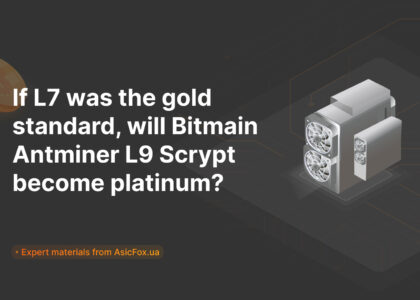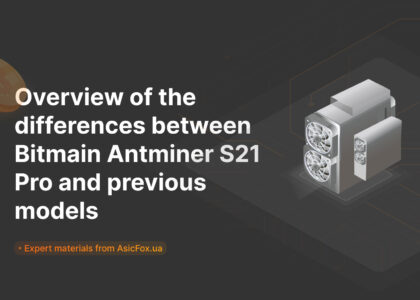The cryptocurrency economic game, which was first described in S. Nakamoto’s article “Bitcoin: Digital Peer-to-Peer Cash,” has now led to a peak price of more than $300 billion accumulated by a disparate group of people acting in their own interests.” If you’re wondering what this could mean, here’s what it means: for the first time in the 5,000-year history of money, a currency issued in an unchanging, transparent, independently verifiable code is competing globally not only with fiat government currencies but also with the standard means of saving – silver and gold. In this age of globalization, people are free to compare Bitcoin and similar inclusive game-theoretic puzzles with alternatives – deflationary currencies controlled from above or bulky physical commodity resources – and rationally choose the former. The emergence of digital currencies, cryptocurrencies, “digital gold” or assets (whichever option you prefer, choose it), was accompanied by extreme volatility, which will continue for about 10 years. However, in the future, in a free market, hard money such as Bitcoin will be the primary means of saving for those who wish to preserve their wealth. At a time when the growth potential of this type of savings is significantly reduced, people will not speculate, and thus volatility will be lower. However, this process may take more than a decade. It is possible that there will be those who will resist the changes by threatening with their power. Perhaps Bitcoin itself will be destroyed or usurped. One thing is for sure: in a free currency market, free-thinking rational participants will definitely choose decentralized money with deterministic rules. And there is a possibility that, due to its decentralized nature, they will be unstoppable. Let’s think about whether this will help to beautify our world. How will the first global decentralized monetary system change, and what will it look like?
Less government power and control
The Bretton Woods system will be destroyed or modified when the decentralized digital currency is the current global measure of value, in which the status of the main reserve currency (namely $) will give the United States of America a significant geopolitical advantage. The ability of countries to control everything by putting pressure on such financial institutions will be reduced or completely eliminated only when the trust in financial resources is guaranteed by a decentralized protocol. And since countries will not have the ability to control these protocols, they will lose the power that control over money flows gives them. After World War II, economic power can rightfully be considered the main component of the West’s grand strategy. Therefore, it is clear that the loss of the ability to exercise this power will probably change global politics. In 2016, K. Schwab, the founder of the World Economic Forum, wrote in his essay: “The 4th Industrial Revolution”, that the ability of governments to quickly adapt to new technologies that can redistribute and decentralize power will ultimately determine their survival. The government will work on the principle of “who is faster”. At the same time, those who can benefit the most from the adaptation process will probably be the first to do so. This can be seen in the favorable regulatory framework introduced, for example, in Malta and Liechtenstein. There are also so-called rogue states that can use the new system of monetary resources to neutralize the classical measures used to isolate them. The Russian Federation, for example, can be considered such a country. Due to the threat of the country’s disconnection from the international payment system called SWIFT (as a result of sanctions), the Russian Federation and other states that refuse to “play by the rules” will be able to resort to digital currency as an alternative for international payments. According to the New York Times, the head of the Russian delegation, who used to work in the FSB, said at the 2017 congress of the International Organization for Standardization: “The Internet has always belonged to the Americans, but blockchain will belong to us.” In fact, there are already governments like this that are eager to use the new hard money to their advantage, and there will only be more and more of them. Such deliberate and rational steps in the future will increase the status and value of decentralized monetary resources. The more they are used now, the more they will be used in the long run. Because the decentralized system of monetary resources may undermine the existing world order, it is extremely difficult to make a forecast of who will win and who will lose. What is known is that even though there will definitely be losers and winners during the global undermining of power dynamics, the overall effect on the population of our planet will definitely be positive. If you are worried that authoritarianism will be able to expand its influence, which will increase oppression and suffering, then it is worth remembering the proverbial “there are two sides to a coin.” Although the current opponents of the reigning hegemony of the US currency will accept the new decentralized money and use it for their own selfish purposes, the overall long-term result will be positive for human freedom. The bottom line is that the Russian Federation and other states, by adopting the new decentralized money, will be able to expand their own sphere of influence in the near future. It’s worth remembering that centralized control over money resources makes countries feel enormous power. The ability of the authorities to single-handedly freeze the accounts of dissidents, for example, has long been considered one of the main mechanisms of control. Another example is the following case: 11 princes, 4 ministers, several dozen former ministers, businessmen, and the capital they owned were recently arrested in Saudi Arabia. This amounted to more than $30 billion, and these assets were simply frozen. Most people believe that the current King Salman did this on purpose so that his son could take the throne without any obstacles. Since the centralized printing of banknotes is the main option for financing wars in the modern world, the reduction of this ability will inevitably lead to a gradual reduction in global militarization.
Democratization of access to capital
Reducing the ability of governments to wage wars with their citizens and among themselves, as well as geopolitical disruption, are the most predictable benefits of the decentralized future of money, but we should not forget about democratizing access to capital and increasing efficiency. Various global decentralized economic networks are capable of creating cryptocurrency ecosystems. These networks can pool capital and distribute risks across entire countries. In our world, all assets should be registered in independent registries, or in other words, blockchains. Anyone can see them and make transfers. Under such conditions, businesses can securitize, for example, a fleet of unmanned electric delivery trucks by selling some part of the ownership of individual trucks that serve a specific area. This is done instead of connecting each truck into a single pool and creating bonds based on the shared financial flow from it. This way, it will be easier for people to make their own investments locally, for example, in the so-called “last mile” delivery infrastructure that they use every day, freeing up unused capital.
Fewer financial losses
In the previous paragraph, we described a complete automatic financial product that can work with suppliers as well as retail investors without the supervision of centralized bodies, but with the ability to audit on demand, operating in an automatic mode. Based on this, we can identify another major advantage of decentralizing banknotes: reducing the resources spent by financial intermediaries. The decentralized money of the future, which is enhanced by the functionality of smart contracts, will become completely automatic. That is why, once contracts are concluded, there will be no need to interact with a large number of intermediaries obliged to put their own stamp on them. We have already found that decentralization of money will democratize access to many financial resources. At the same time, the deflationary nature of hard money will make it possible not to search for such financial products. It is worth remembering that under the current status quo, even in the best currencies, such as the US dollar, you will lose approximately 2 percent per year due to inflation. It is for this reason that if today people are willing to find financial instruments to compensate for expenses, then when the money is not inflationary, the desire and urgent need to spend it will disappear by itself. The more people feel comfortable keeping the bulk of their equity in new money, the less motivation there will be to quickly redistribute cash savings that previously generated negative growth.
More rational investments
This will definitely affect our future. As a rule, people will try to invest more rationally. To avoid rash investments in everything, long-term financial products with added value will now be prioritized. This process of deleveraging will help to avoid unscrupulous financial accounting and the get-rich-quick mentality that caused the last financial crisis. A decentralized currency will inevitably lead to an end to inflation and will also level the playing field, making it easier for the poor to live. Currently, only those with sufficient cash can afford to invest it to hedge against inflationary losses. They can also usually use a professional investment service that provides them with the best results. But still, the poor and middle class generally do not have the extra cash and/or access to professional resources needed to invest rationally in high-performing assets. This means that they are disproportionately exposed to inflationary losses of centralized fiat currencies. That is why the end of inflation may mean that those who have very little money will not be penalized by being denied access to the financial poker table because of their lack of these very resources.







Feedback (0)
Leave a review